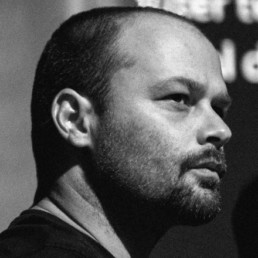Comment
The Collapse of Change: A View from the Future
The ship’s log of Novo Potosi is an exploration of the future looking backward to recent Latin American history. Almost like an anthropology of the future, Potosi explores a dystopian scenario where Latin America as a place and imaginary, ceases to exist. Causes and reasons for the extinction of Latin America are uncertain in the story, but generally point to situations of a lock-in, where different socio-technical trajectories reach a tipping point toward collapse but actors and institutions found themselves unable to change. The idea of collapse is very different from the notion of a ‘tipping bomb’ or the prospect of nuclear winter in the 60s, 70s and 80s. The collapse traced in the video is something much deeper. It is something that is already going on at the economic, social and environmental level and cannot be cancelled in a single action. There is no cutting the red cord there. The collapse informing this future is a process with enormous inertia. Indeed, it is a more than human inertia that was triggered by a process called Anthropocene. Perhaps uncertainty about the collapse is related to the inability to change? This is difficult to know from the perspective of an anthropology of the future. There are only remaining fragments. Like the little residues that the sea brings back to the shore, you never find a complete story. That’s why, in the anthropology of the future, reality easily mixes with fiction and becomes myth. Perhaps the saddest finding of the exploration of the future is not the collapse, nor the failure to take alternative pathways, but the utter disappearance of the imagination for change.
Video edited by Beto Shawaty.
Luciana Fleischman studied Social Communication at Rosario National University (Argentine) and holds an MA in Communication, Image and Information of Universidad Federal Fluminense (Brazil). She lives in Rio de Janeiro where she conducts research, produces and coordinates experimental activities in art and free technologies. She is member of the organizational team of the Festival Tropixel-Arte, Ciencia, Tecnología y Sociedad, part of the project Aprender Brincando which develops laboratories of internet learning in public schools in Rio de Janeiro. She is also member of the platform Rede//Labs which does research on experimental digital cultures in Brazil and Latin America.
Beto Shwafaty (São Paulo, 1977) is a conceptual artist and researcher based in Brazil. He holds an MA in Visual Arts and Curatorial Studies from the Nuova Accademia di Belle Arti – NABA (Milan, 2010) and accompanied the group of Simon Starling at the Staedelschule (Frankfurt, 2010/2011). Shwafaty has been involved with collective, curatorial, and spatial practices since the early 2000s, and as a result, his own practice is connected to contemporary spheres of critical design, of spatial politics, of the knowledge economy and of visual culture. Thus, Shwafaty develops a research-based practice (on spaces, histories and visualities), which seeks to connect formally and conceptually political, social and cultural issues that are converging to the field of art.
Fran Ilich is a media-artist, essayist and novelist. He is the author of the novels Metro-pop and Tekno Guerrilla. Ilich is the founder of Borderhack; he headed the Literature department at Centro Cultural Tijuana; he was the screenwriter for Interacción, a television program for Discovery Channel Latin America; in Mexico City he was Editor-at-Large for Sputnik Cultura Digital magazine and worked as a researcher at Centro Multimedia; and he directed seminars on narrative media for the Universidad Internacional de Andalucía in Sevilla. He has participated in Berlinale Talent Campus, Transmediale, ARCO, Documenta 12, How Latitudes Become Forms at the Walker Art Center, Streaming Cinema Festival, Antídoto and the EZLN’s Festival Mundial de la Digna Rabia (by personal invitation of Subcomandante Insurgente Marcos). He is studying an M.A. in Media Art Histories at Donau-Universität Krems, in Austria with a scholarship from the Leonardo Foundation.

